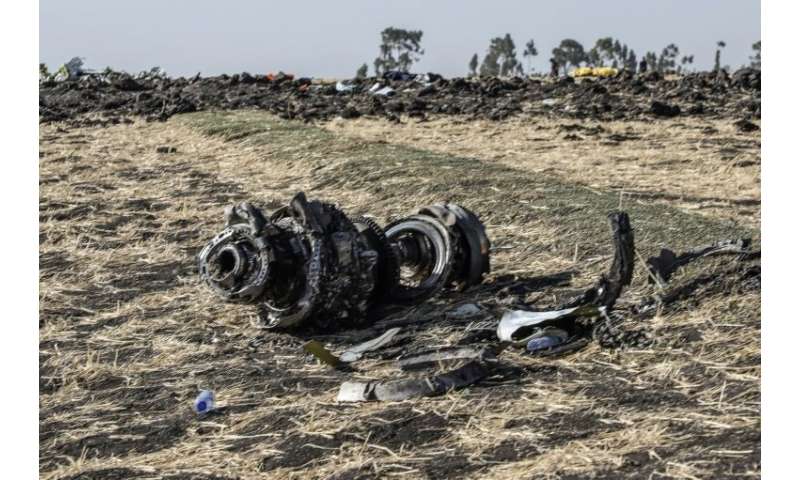Who benefits?
 |
| Phys.org |
But they were pretty
silent about our government’s role altogether in giving the job of supervising
new technology to the air manufacturers themselves.
In other words, it was
a lousy review of those charged with keeping us safe—because de-regulation,
rocket-fueled by the Donald Trump administration—is the word of the day.
Too many rules for safety might affect jobs, they tell us.
Too many rules for safety might affect jobs, they tell us.
So, last week, Boeing
and its CEO, Dennis Muilenberg, apologized publicly again, even before
sign-carrying family members, for mistakes that led to two international
crashes of its 737 Max aircraft. Muilenberg owned up to the fact that Boeing
set aside a test pilot’s warning— information that the company had not
described in previous testimony.
What did Congress think
was going to happen when they gave the regulatory keys to the companies
themselves?
The apologies came before a Senate committee investigating the safety concerns that were unusual for their bipartisanship and their fierceness toward the company. The testimony came on the anniversary of the first of the crashes in Indonesia, and the planes in question are still not flying.
The messages, which date back to November 2016, were given to the Department of Justice investigators in February but were not released to the Federal Aviation Administration or other regulators until after the second 737 Max crash, months after their discovery. They suggest Boeing may have tried to hide the safety concerns from regulators.
Then House members
followed with disclosure of key documents from their own investigation that
included an email in which a Boeing engineer questioned in 2015 whether the Max
was vulnerable to the failure of a single sensor—the scenario that led to
crashes in Indonesia and Ethiopia.
By contrast, Boeing this week said 50 other 737 NG planes should be grounded after discovering structural cracks.
No FAA Review
But there has been
little congressional concern about the Federal Aviation Administration process
itself. Those regulatory procedures were changed to allow companies like Boeing
much more responsibility for overseeing safety. Boeing, meanwhile, was busy
trying to introduce its new plane before Airbus’ alternative.
You’d think that
Congress would care more about what the government is doing to protect the
consumer, the flying customer, than about jumping on the company. What did
Congress think was going to happen when they gave the regulatory keys to the
companies themselves?
A report earlier this
month by representatives of the FAA, NASA and nine international regulators,
provided the first official detailed account of how federal regulators
certified the Max. Lawmakers and federal investigators are still conducting
their own inquiries into the design and approval of the jet.
That report found a
breakdown in the regulatory system and poor communication from Boeing, which
did not adequately explain to federal regulators how a crucial new system on
the plane worked, the report says.
The report found that
the FAA relied heavily on Boeing employees to vouch for the safety of the Max
and lacked the ability to effectively analyze much of what the company did
share. It also found that Boeing employees who worked on behalf of the FAA
faced “undue pressures” at times during the plane’s development because of
“conflicting priorities,” according to the report.
“This report confirms
our very worst fears about a broken system,” Sen. Richard Blumenthal, Democrat
of Connecticut, said at the time. “To put the fox in charge of the henhouse
never made any sense, and now we see the deeply tragic consequences.”
Boeing’s board has
stripped Muilenberg of his title of chairman of the board, but he remains as
president of the company.
Added Needed Scrutiny
The review scrutinized
the FAA’s certification of the Max’s flight control system, including the new automated system,
MCAS, which played a role in both crashes.
The report found that
while the FAA had been made aware of MCAS, “the information and discussions
about MCAS were so fragmented and were delivered to disconnected groups” that
it “was difficult to recognize the impacts and implications of this system.”
The report said if FAA
technical staff had been fully aware of the details of MCAS, the agency would
probably have required additional scrutiny of the system that might have
identified its flaws. The task force recommended that the FAA review staffing
levels at its Boeing office in Seattle and review the Boeing office that allows
company employees to perform certification work.
My question here is
simple: Who besides the mavens in the White House thinks that stripping away
regulation from oversight responsibilities in the environment, health and
transportation actually believes that we are safer?